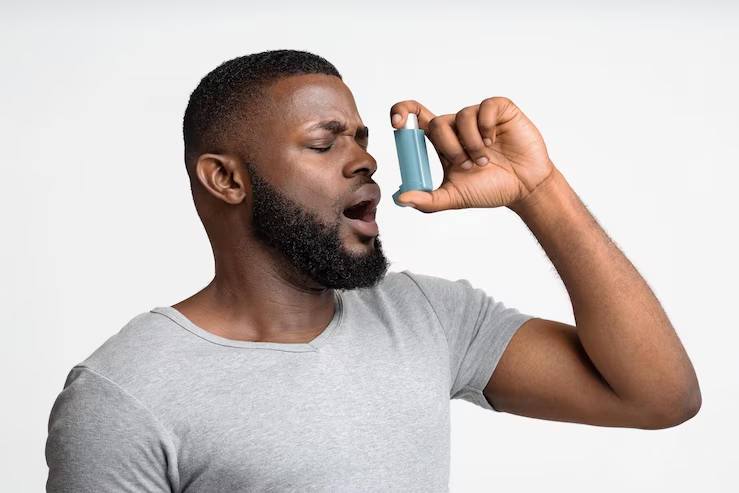Complications of Asthma
Asthma complications include:
- Signs and symptoms that interfere with sleep, work and other activities
- Sick days from work or school during asthma flare-ups
- A permanent narrowing of the tubes that carry air to and from your lungs (bronchial tubes), which affects how well you can breathe
- Emergency room visits and hospitalizations for severe asthma attacks
- Side effects from long-term use of some medications used to stabilize severe asthma
Proper treatment makes a big difference in preventing both short-term and long-term complications caused by asthma.
Prevention of Asthma
While there’s no way to prevent asthma, you and your doctor can design a step-by-step plan for living with your condition and preventing asthma attacks.
- Follow your asthma action plan. With your doctor and health care team, write a detailed plan for taking medications and managing an asthma attack. Then be sure to follow your plan. Asthma is an ongoing condition that needs regular monitoring and treatment. Taking control of your treatment can make you feel more in control of your life.
- Get vaccinated for influenza and pneumonia. Staying current with vaccinations can prevent flu and pneumonia from triggering asthma flare-ups.
- Identify and avoid asthma triggers. A number of outdoor allergens and irritants — ranging from pollen and mold to cold air and air pollution can trigger asthma attacks. Find out what causes or worsens your asthma, and take steps to avoid those triggers.
- Monitor your breathing. You may learn to recognize warning signs of an impending attack, such as slight coughing, wheezing or shortness of breath. But because your lung function may decrease before you notice any signs or symptoms, regularly measure and record your peak airflow with a home peak flow meter. A peak flow meter measures how hard you can breathe out. Your doctor can show you how to monitor your peak flow at home.
- Identify and treat attacks early. If you act quickly, you’re less likely to have a severe attack. You also won’t need as much medication to control your symptoms. When your peak flow measurements decrease and alert you to an oncoming attack, take your medication as instructed. Also, immediately stop any activity that may have triggered the attack. If your symptoms don’t improve, get medical help as directed in your action plan.
- Take your medication as prescribed. Don’t change your medications without first talking to your doctor, even if your asthma seems to be improving. It’s a good idea to bring your medications with you to each doctor visit. Your doctor can make sure you’re using your medications correctly and taking the right dose.
- Pay attention to increasing quick-relief inhaler use. If you find yourself relying on your quick-relief inhaler, such as albuterol, your asthma isn’t under control. See your doctor about adjusting your treatment.


